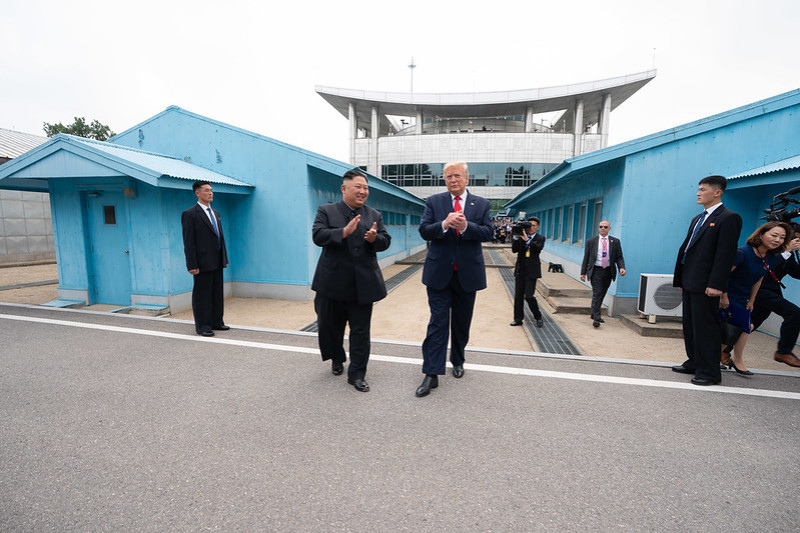
On Wednesday of June 17, President Trump extended existing U.S. sanctions on North Korea for another year.
North Korea and South Korea were experiencing tensions when North Korea blew up the inter-Korean liaison office and threatened to redeploy troops to the Mount Geumgang tourism zone and the Gaeseong Industrial Complex.
North Korea justified its actions including the demolishing of the inter-Korean liaison office by claiming Seoul was violating the 2018 agreement to stop flying propaganda balloons filled with anti-Pyongyang propaganda leaflets.
President Trump sent a notice to Congress stating that he will continue the "national emergency with respect to North Korea" declared by Executive Order 13466.
Executive Order 13466 first declared on June 26, 2008 calls for sanctions on North Korea for its nuclear and ballistic missile programs.
Trump explained his reason for his decision to extend the national emergency beyond June 26, 2020 in his routine notice to Congress, "The existence and risk of proliferation of weapons-usable fissile material on the Korean Peninsula and the actions and policies of the Government of North Korea continue to pose an unusual and extraordinary threat to the national security, foreign policy, and economy of the United States."
Trump added that the North Korean government's actions and policies "destabilize the Korean Peninsula and imperil United States Armed Forces, allies, and trading partners in the region."
By law, the national emergency declaration would be automatically terminated unless the president renews it within 90 days ahead of its anniversary date.
Analysts presuppose that North Korea is trying to create friction to possibly gain more concessions from the US.
President Trump and North Korean dictator Kim Jong-un have already met three times in the past two years to agree on a deal to dismantle North Korea's nuclear program only to fail at coming to an agreement at their second summit in Vietnam in February 2019 over differing views.


















